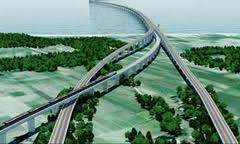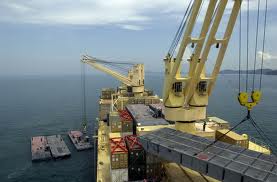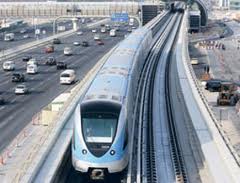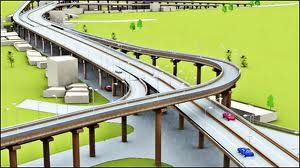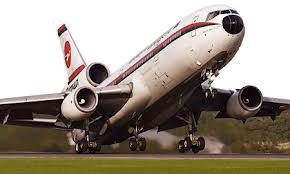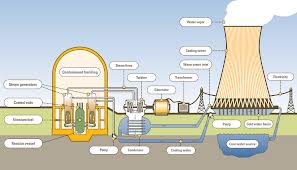4 YEARS OF AWAMI LEAGUE, Mega projects, mega failures
EUROBD DESK:
PADMA BRIDGE, Initial expectation: Completion by Dec 2013 , Status: Uncertain.
DEEP-SEA PORT, Initial expectation: End of first phase by 2015 Status: Chinese proposal submitted.
METRO RAIL, Initial expectation: End of first phase by 2015 Status: Indecision over route causes two-year delay.
ELEVATED EXPRESSWAY, Initial expectation: Completion by Jan 2014 Status: No progress for lack of funds, failure to acquire land.
BANGABANDHU AIRPORT, Initial Expectation: To start during AL govt tenure Status: Abandoned following public protest.
NUCLEAR POWER PLANT, Initial expectation: Completion by 2016-17 Status: A loan deal likely during PM’s Russia visit this month
Four decades after its independence, Bangladesh had a government that rolled out plans for a series of mega projects aimed at revolutionising communications, port and energy sectors and drastically turning the country’s economy.
Unfortunately, the Awami League government’s very weak governance, indecisions, inability to execute plans, alleged indulgence of some in corruption, fund shortages, and donors’ conditions affected progress of most of these projects.
The government made some headway with the mega projects in the power sector but communication and port sectors saw disappointing progress.
Most of the projects in question made some advancement but cannot be completed within the tenure of the present government.
With the change of the government, these projects might either face death or get wrongfully credited as the brainchild of the next government, as seen in the past.
These mega projects include: the deep sea port, the Padma bridge, the metro rail project, nuclear power project, Dhaka Elevated Expressway, capital dredging of 53 river routes, a new international airport named after Bangabandhu, massive projects in power sector that include a lot of coal fired power plants, building a Liquefied Petroleum Gas (LPG) terminal to import gas, digitising land management, building new rail lines, equipping the rail sector, and several dual-carriageway highways to increase connectivity.
It was assessed that building the Padma bridge would have alone increased the country’s GDP by 1 percent and the deep sea port by another 2 percent.
Implementing the other mega projects would similarly contribute to the nation’s GDP growth.
Of these, the government made some achievements in the power sector by adding more than 3,500 megawatts of electricity to the national grid while aiming to generate a total of 16,000MW by 2016-17. Despite some major successes in the sector, a number of its mega projects, including a 1,320MW coal-fired plant, could not begin.
The government also made good progress in the rail sector. But its effect would be visible in 2013 with the launching of several new important rail lines and introduction of a good number of locomotives and other equipment. However the rail still reels from severe manpower shortage, which the government is unlikely to overcome soon.
PADMA BRIDGE
The $2.9 billion Padma bridge is the biggest failure of the government as it could not start its construction.
The World Bank had cancelled its loan for the project alleging conspiracy of corruption, reportedly by a host of people including ex-communication minister Syed Abul Hossain.
The bank later conditionally revived the loan. The government apparently had not fulfilled the conditions so far, which include filing a case against all the corruption suspects.
The Anti-Corruption Commission had filed a case in this regard but without accusing Abul.
The government had earlier planned to finish construction within its tenure but now it is saying that at least the foundation stone of the bridge would be laid.
METRO RAIL
Japan was ready to fund the $2.7 billion metro rail project as soft loan since 2010 but the government failed to approve a route for a long time.
This failure stemmed from the objection of the Air Force against the route that goes by the side of the abandoned Tejgaon Airport. This forced the government to go for a revised route.
Japan finally approved the loan with the revised route.
The metro rail construction is expected to start this year.
DEEP SEA PORT
Experts say there is no alternative to a deep sea port as the capacity of the Chittagong Port would be exhausted by 2015.
As per a Japanese study in 2009, the country could build this Tk 40,000 crore port in Sonadia Island in three phases. The first phase was supposed to start at the end of 2011 and be completed by 2015 at a cost of Tk 13,000 crore. The second and third phases would be implemented for another Tk 27,000 crore over the next four decades.
The study estimated that the port would boost the country’s GDP growth by 2 percent, as it would generate huge employment, increase export and import and raise the country’s capacity to handle cargo.
After this study, China formally proposed financing and constructing the port and it remains open to partnership with other countries including India, Germany and the USA.
But the government remains silent about the matter.
NUCLEAR POWER
In 2009, the government committed to build the $2 billion Rooppoor nuclear power plant and sought cooperation from Russia.
It had initially aimed to commission the plant by 2017-18 but the pace of the project remains very slow.
As of today, Bangladesh could bag a Russian offer of half a billion dollars with 4.5 percent interest rate. The total cost of this 1,000MW plant is estimated to be more than Tk 12,000 crore. The government is hopeful that an agreement would be signed in 2013.
NEW AIRPORT
To make aviation a serious international business, the government planned to make a massive international airport in 2009. At first it chose Trishal of Mymensingh as the site.
Then some civil aviation and defence experts suggested a site in Arial Beel in Munshiganj, which is a major food basket of the country.
This triggered widespread protest and the government withdrew and selected four other sites. But eventually the government killed the project fearing backlash and lack of funds.
ELEVATED EXPRESSWAY
This 21km project was awarded to an Italian-Thai joint venture in 2010. The construction of the Tk 8,703 crore expressway was scheduled to start in July, 2011, with 42 months time to complete.
But the joint venture failed to secure the initial investment and the project remains hanging. New problems emerged over partial land acquisition as well.
The government has revised the expressway design, reducing its length by four kilometres, to avoid conflict with Gulistan-Jatrabari flyover and land acquisition complexities.
It is still not clear when this project would take off.
CAPITAL DREDGING
The government in 2009 launched the Tk 11,000 crore capital dredging project on 53 river routes to be completed in nine years. The aim was to bring back navigability of important rivers, control floods and ensure proper irrigation.
Its implementation was hard hit by lack of funds and dredgers. Now the government aims at dredging from late 2013.
SHUTTLE RIVER ROUTE
The shuttle service on river route project was initiated by the previous Awami League government in 2000 but it was shelved during the BNP regime. The government revived it in 2009 but due to inept handling, it went slow.
Now the new river route is expected to start from March, 2013, to carry goods between Dhaka and Chittagong to reduce pressure on the highway and minimise cost and save time. This would greatly facilitate exports.
The river route is a part of a Tk 177 crore project under which Chittagong Port Authority and Bangladesh Inland Water Transport Authority would build an inland container terminal in Pangaon.
ROADS
The government made paltry progress in doubling the capacity of the most important Dhaka-Chittagong highway, although this was the government’s top priority project initiated in 2009.
Extortionists and gangsters, who allegedly are sometimes backed by lawmakers, stopped its progress. As of now, only a quarter of this project has been completed.
It was supposed to be finished by 2012.
In the expansion of Dhaka-Mymensingh highway, less than 15 percent of the job has been completed.
LAND DIGITISATION
At least 85 percent of the cases pending with courts are related to land disputes. These disputes trigger conflict and make room for corruption.
The government in 2009 announced digitisation of land management system. Till date, only one pilot scheme was launched as the government bowed down to various groups.
COAL CITY & COAL DEVELOPMENT
In early 2009, the government toyed with the idea of developing a coal city near Barapukuria that would provide homes and jobs to people affected by coal mining and become the centre of mining related higher education.
The government started a hydrological study to tap coal resources in a big way to reduce the country’s dependency on imported fuel as well as overcoming gas shortage.
However, as some pressure groups resist the idea, the government abandoned the plan for coal city and tapping into new coal mines which have enough coal to cost-effectively address the country’s energy crisis in the mid-term level.
Instead the government went for power projects that produce several thousand megawatts but depend on imported coal.
The government also remains compelled to generate a portion of the country’s total electricity using imported fuel, forcing power tariff to increase repeatedly and imposing heavy subsidy burden.
SOURCE : THE DAILY STAR
Category: English News


